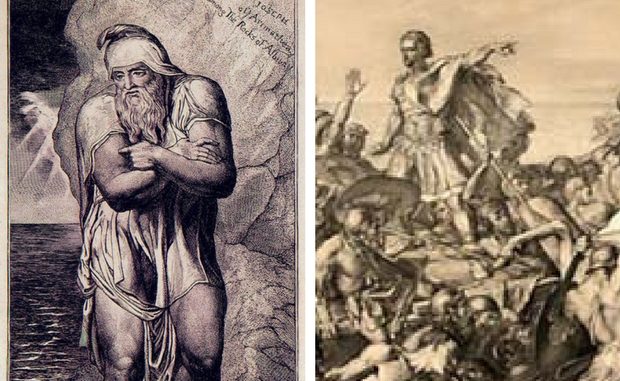
As a writer, my job is to tell stories. Some are true, others I make up, but they are all tales of some description. As it is Easter weekend, perhaps this is a good time to tell the story of possibly the most famous visitor to Thanet: Jesus Christ.
Jesus’ uncle, Joseph of Arimathea, is well-documented in the Bible as being responsible for collecting his nephew’s body from Pontius Pilate and purchasing the grave where the body lay. Joseph of Arimathea was a tin merchant and a wealthy man, and travelled far to trade.
When Julius Caesar first invaded Britain (right here in Thanet) around fifty years before Jesus was born, Ancient Britain was already trading with Europe and known as a hotspot for tin due to the vast quantities mined from Cornwall. It makes sense, then, that Joseph of Arimathea would visit that part of the Britain, as along with Brittany in France it was rich in trade opportunities.
The story goes that on one occasion, Joseph brought his nephew with him to Cornwall. Jesus would have been barely a teenager at this point, and likely travelling with his uncle to increase his education and improve his trading skills. As Jesus was able to communicate with his fellow Jews, along with the Romans and people of other local dialects, it is comfortable to assume he was multilingual; a trait he may have developed from these journeys at a young age.
They arrived from Brittany by boat, and as Joseph was already a regular visitor to the area, they stayed a while. Eventually, after Joseph had finished trading saffron for tin, they returned. At this point, the story becomes less clear, and their way back is not described.
Whilst travelling over water with large quantities of saffron is understandable – as it was a rare and expensive item – to load up Iron Age boats with enough tin to make the trip to Britain worthwhile seems unlikely, as the boats available would not be able to carry that amount of weight, at least over open sea with a greater risk of sinking. Instead, the tin could have been transported over land on carts, to be shipped across the water at the point of least resistance: from Kent.
Assuming Joseph of Arimathea bought lots of tin and moved it over land; he would bring it, himself, and his nephew to the best place for crossing the English Channel. Rather than trying to drag it down the sides of cliffs, it is more likely he would go to the closest point to France – a natural harbour where Romans had previously landed – at Cliffsend.
Loading tin onto boats may have taken a while, and they had a long journey ahead of them. Perhaps, to pass the time, Joseph and the young Jesus wandered the streets of Ramsgate? After all, what better way for the future messiah to spend a day or two than at the local arcades, playing draughts or knucklebones and sampling the local beer (for which we are still known).
Now, I must admit, there is no proof of Jesus coming to Thanet. There is also no proof of Jesus visiting Glastonbury, but William Blake still wrote a poem about it which was turned into a hymn and continues to be popular. Plus, if there’s one thing that Jesus is known for, it’s that proof is less important than faith. If we believe Jesus graced our fair shores, then surely that is enough?
Either way, it makes a good story.

